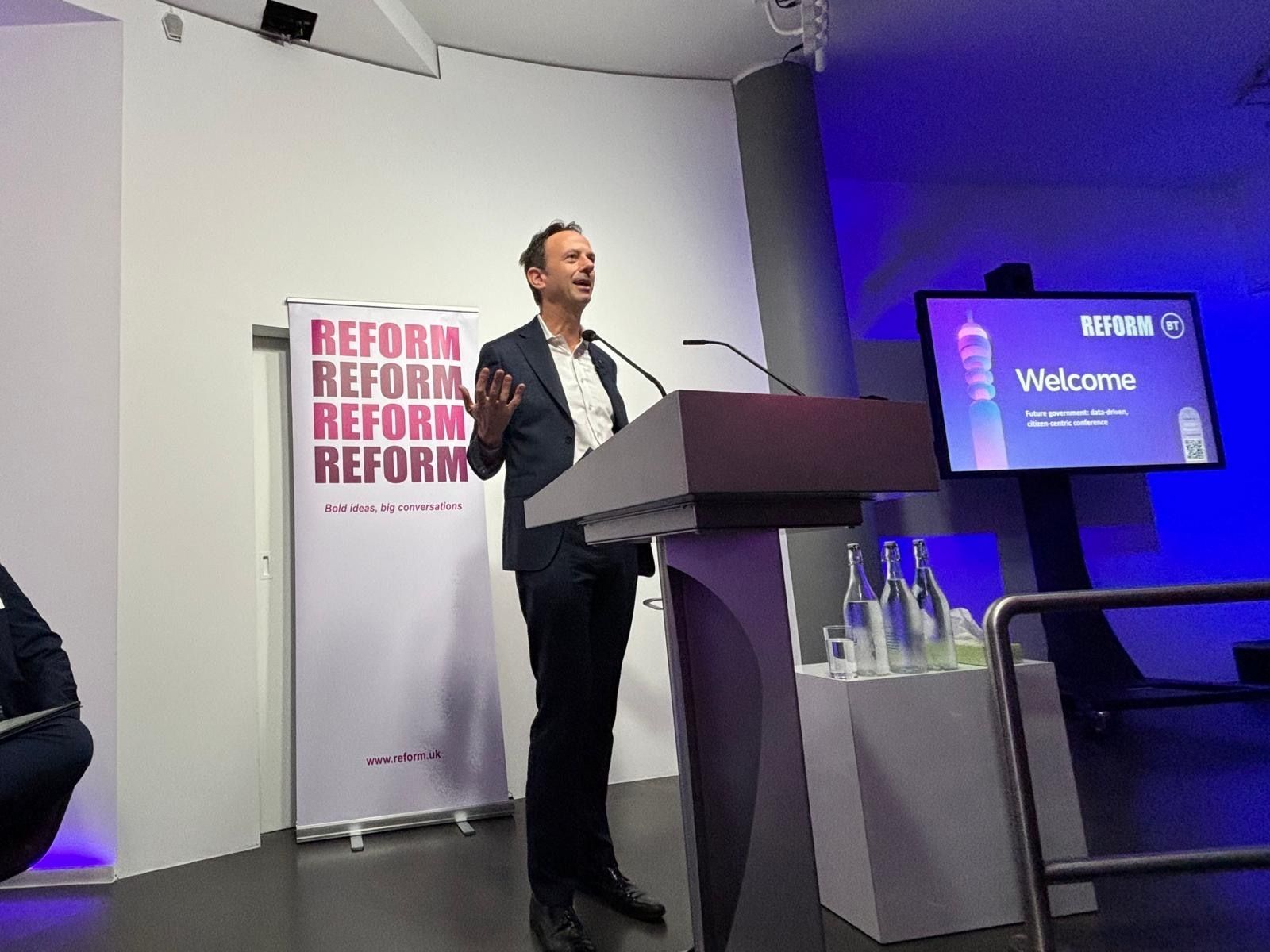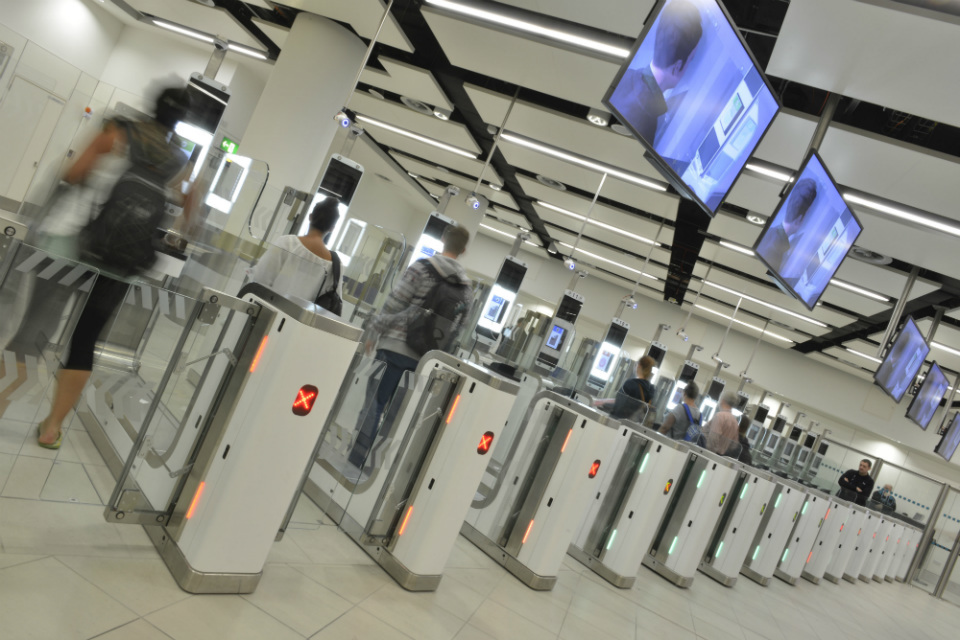Outgoing Cabinet Office chief Alex Chisholm tells conference that automation could perform much of the duties of swathes of admin staff – comments that have since been reinforced by ministers
The use of artificial intelligence could save government almost £5bn a year and could take over large parts of the administrative duties currently performed by “tens of thousands” of staff, according to Whitehall’s operations chief.
Alex Chisholm, civil service chief operating officer and permanent secretary of the Cabinet Office, this week told an event hosted by the Reform think tank that AI and automation is forecast to reduce government’s operational delivery costs by 31%. Productivity savings could reach £4.8bn a year, he said, as technology increasingly takes on the heavy lifting of work that, until now, has required the attention of a significant proportion of government’s 500,000-plus employees.
“Currently there are tens of thousands of people engaged in low-level admin – case management-type work for benefits and tax self-assessment and so on,” Chisholm (pictured above at the event) added.
“When you have a child, when you get married, when you buy a house, when you get a new job or lose a job – we would like to move more to a system of ‘tell us once’.”
Alex Chisholm, civil service COO
The government COO’s comments were made on the same day as deputy prime minister Oliver Dowden claimed that government’s Incubator for AI – a new specialist central unit focused on supporting the use of automation across departments – would serve as a “significant downward driver” on the size of the civil service. And, one day later, chancellor Jeremy Hunt used his autumn statement to set a target of cutting a cumulative total of 66,000 government jobs by the end of the next spending review period in March 2028.
Elsewhere in his speech at the Reform conference, Chisholm claimed that, in addition to the AI-powered efficiencies, ongoing work on the digital transformation of services will save government a total of £365m annually – equating to £1m saved each day.
A three-year government-wide digital and data strategy published last year set out plans to ensure that two-thirds of the top 75 most critical or highly used services will have achieved a defined ‘great’ standard by 2025. A total of 15 have already met this threshold, and another 35 will do so over the coming 18 months, Chisholm said.
As part of this upgrade work, government has now established a cost-per-transaction for each of the top services – data that was previously not available, according to the Whitehall chief.
In the longer term, the aim is for services to better join up – in a manner exemplified by the ‘Tell us once’ service, which enables people to inform government of the death of a loved one. Once they have done so, this information is then circulated to all relevant agencies, including the likes of the Department for Work and Pensions, HM Revenue and Customs, and the Passport Office.
£4.8bn
Annual productivity savings government believes can be achieved through use of AI and automation
66,000
Chancellor Jeremy Hunt’s target for the number of jobs to be cut from the civil service by the end of the next spending review period
153
Number of red-rated high-risk legacy IT systems across government – all of which now have funding an a plan for remediation
50
Number of government’s foremost services that will have met a certified ‘great’ standard within 18 months
£1m
Estimated daily savings that will be enabled by government digital transformation – adding up to £1m a year
Chisholm indicated that the ambition is to offer similarly unified services for other major life events.
“We would like that to happen when you have a child, when you get married, when you buy a house, when you get a new job or lose a job – we would like to move more to a system of ‘tell us once’,” he said.
Such service transformation will be supported by concurrent work to address the use of ageing technology across government, according to Chisholm. The Cabinet Office-based Central Digital and Data Office last year created a framework for assessing the risks of legacy IT systems and, going forward, all ministerial departments will be required to conduct annual organisation-wide assessments of their technology estate and submit the findings to a central register created by CDDO.
The initial tranche of assessments identified 153 systems across government that are rated red on a traffic-light scale, making them the highest priorities for remediation. Upgrade and replacement work can draw on a funding package of £2.6bn committed in the 2021 spending review to address legacy risk and cyber vulnerabilities throughout departments.
All of which means that, for the first time, all of government’s most high-risk tech systems have in place the necessary financial and strategic support to undertake resolution work.
“We have really turned a corner in the last three years,” Chisholm said. “All the 153 [red-rated legacy systems] have a funded and carefully planned out remediation plan.”
Framing the need for – and importance of – government reform, Chisholm said that increases in healthcare spending are now rising faster than GDP, while an increasingly ageing population will put more strain on government services in the next 20 years.
He added that, if the UK’s debt interest payments represented a government department, it would have the third biggest budget in Whitehall, behind only the Department for Work and Pensions and the Department of Health and Social Care.
“And it would be a really fun department to work in,” Chisholm joked.
The COO and Cabinet Office leader announced recently that he is to step down in the spring and leave government after 10 years. Recruitment has now been launched for a single candidate to fill both of his roles – duties which come with a salary of between £175,000 and £185,000.




